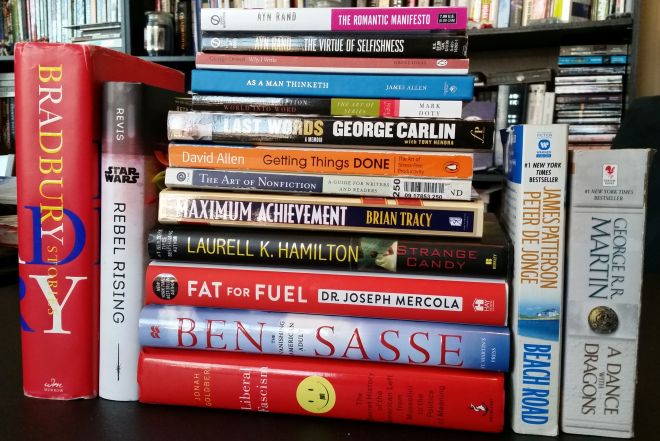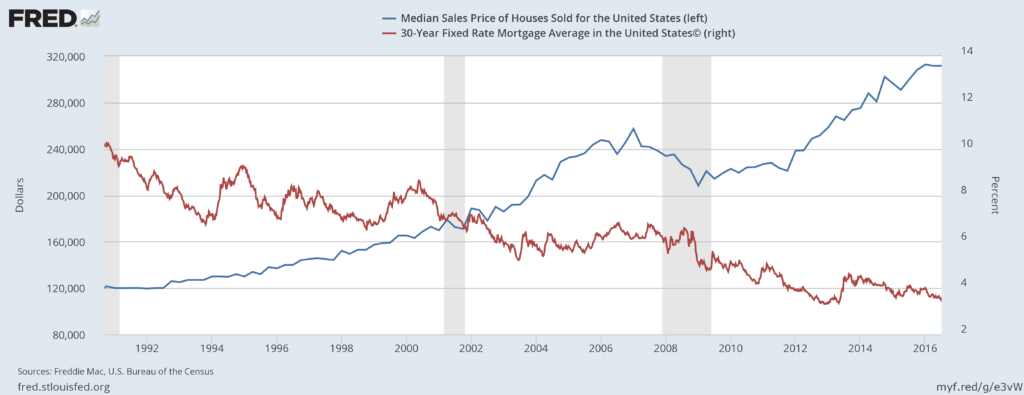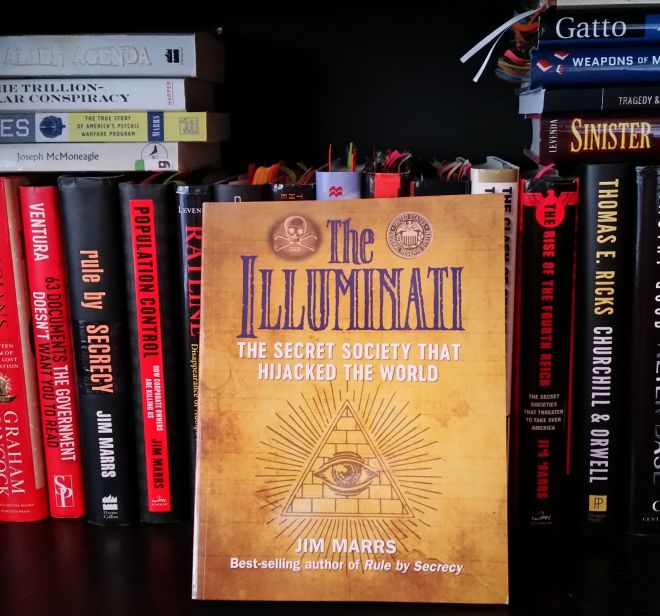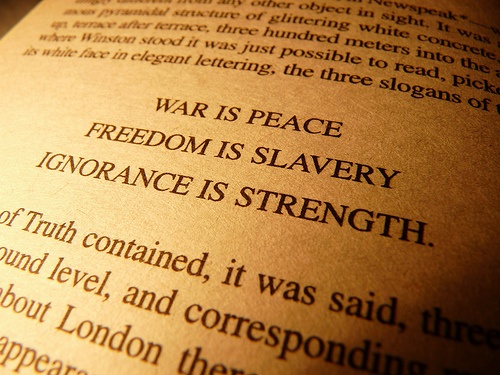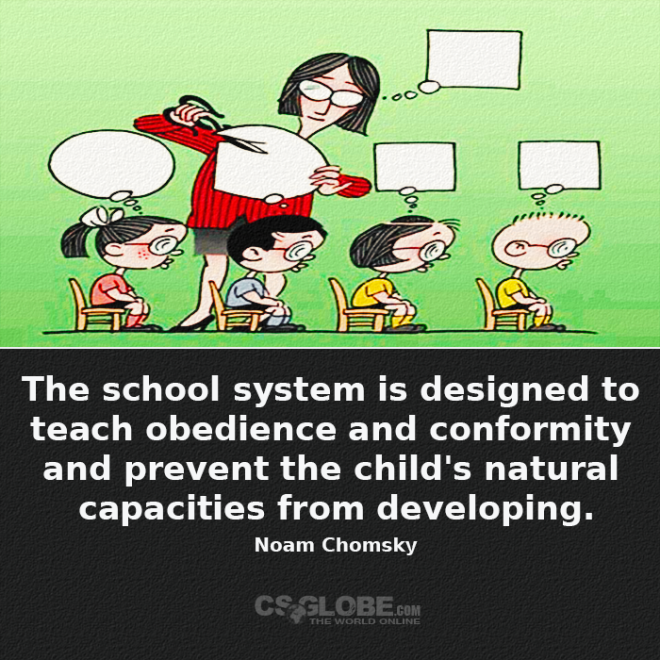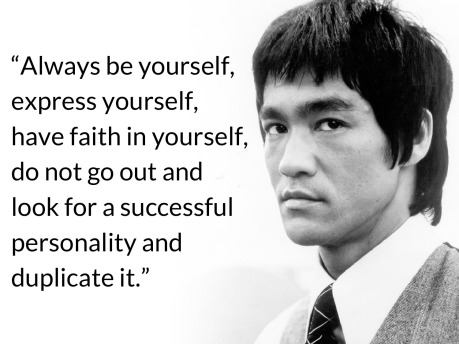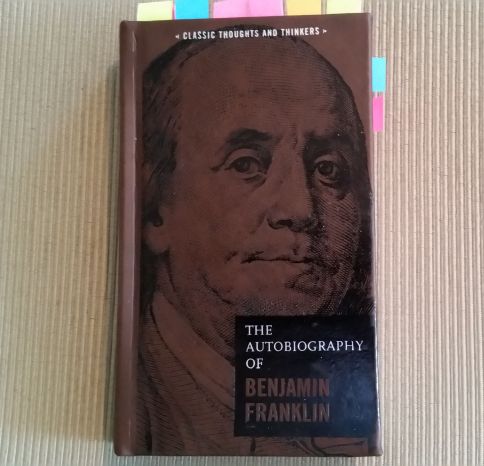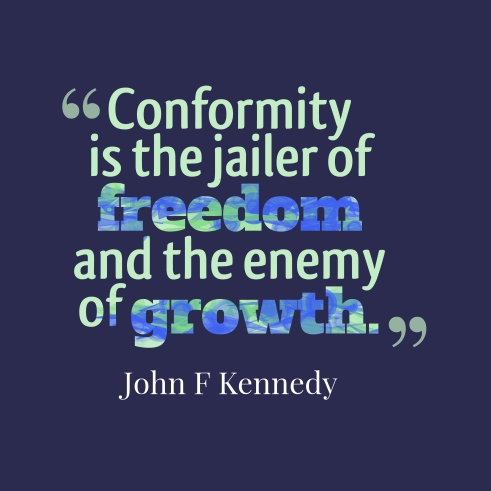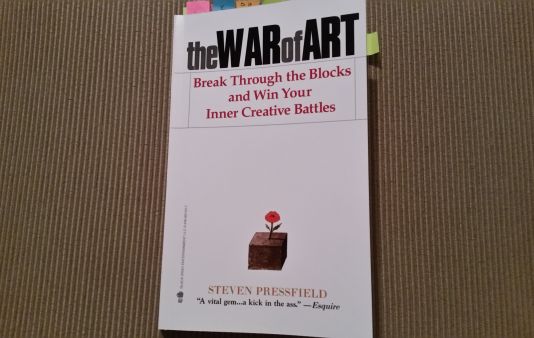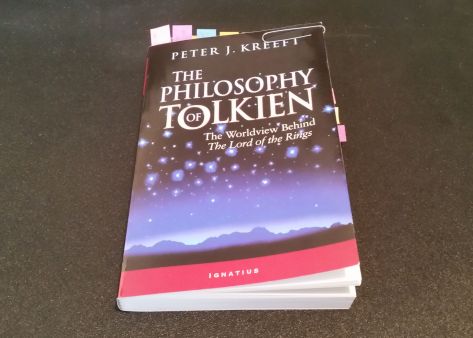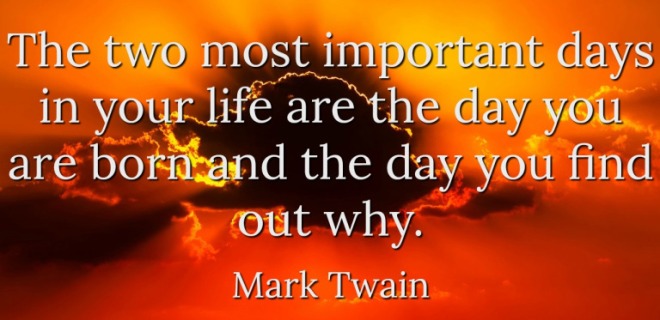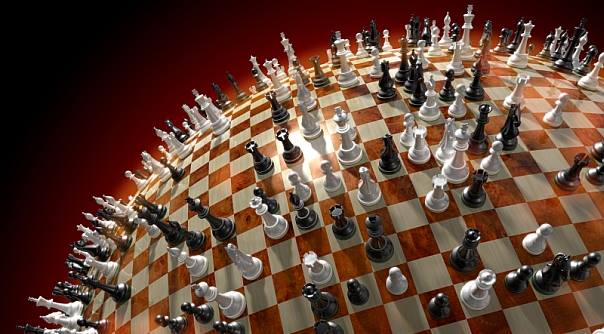
Source: NoMoreFakeNews.com | JonRappoport.wordpress.com
Jon Rappoport
March 30, 2017
“Above all, the Globalist elite considers the human being is nothing more than a biological machine—a machine that is badly programmed, desperately in need of a complete overhaul and restructuring at the level of mind.” (The Underground, Jon Rappoport)
Over the years, I have written much about Globalism. During the 2016 US presidential election, Donald Trump spoke of it often, and in derogatory terms. He brought back, for the public, the concept, which had receded from press coverage. You could say he let the cat out of the bag.
So here I thought I would publish, in a series, some of the important material I’ve written on the subject. People need to be aware of the elite movement called Globalism and its aims and strategies.
ONE: “Over the weekend, thousands of protesters across multiple countries condemned impending [Globalist] trade deals promoted by governments and their corporate partners. Though the protests received little coverage from mainstream media, they stretched from Paris to Warsaw.” (Carey Wedler, Blacklisted News, 10/19/16)
Now that the election is over, it’s important to review a few facts about Globalism. It was a centerpiece of controversy during the run-up to the vote.
Globalism isn’t just an abstract word or idea. It gives survival to some, and tries to take it away from others. It lights on populations like a storm of locusts. It undermines jobs and work. It steals. It is designed to make chaos.
Globalism is based on the elite conviction that “the best people” should rule over everyone else for the greater good. “We’re not trying to do harm. We’re spreading the wealth.”
We can find the seeds of Globalism in Plato and his ancient dialogue called The Republic. Plato made his final philosophic stand on that work. Step by step, he establishes that The Good, which is highest concept in the universe, which exists in a realm of “pure ideas” apart from the daily round of existence, must be accessed and understood, if society is to meet up with its best destiny.
But, naturally, not all people are able to fathom The Good or translate it into action here in this human realm. Only the few can grasp it—and they must rise to the top and rule.
So, in the end, there is a fascist paradise. It rebuffs all attempts at dilution.
This is how Plato, the humane philosopher, the champion of the individual and freedom and independent thought, painted himself into a terrible corner. But never mind. Down through the centuries, “the wisest of men” have taken their cue from him and built nations and civilizations based on their (self-serving) version of The Good.
And in the process, they have used propagandists to convince populations that rule from above is only carried out as altruistic service…
When a system has been devised, planned, launched, and maintained by criminals to undermine a nation, they are naturally going to defend it by saying: “It’s good for everyone AND THERE IS NO OTHER WAY TO MANAGE HUMAN AFFAIRS. BESIDES, WE CAN’T STOP IT NOW. THAT WOULD CAUSE WIDESPREAD CHAOS.”
In exactly the same way, a massive prison housing nothing but innocent people would superficially look like “chaos,” if the airtight security system were turned off.
The truth about the Globalist prison is simple. The underlying operation takes jobs away from America, in this instance, and sends them to Third World hell holes, where the same products are manufactured by the same companies, for pennies, using slave workers who labor in toxic environmental conditions that destroy their health.
Isn’t that easy to understand?
The American companies in those hell holes then sell the products back to Americans without paying taxes, tariffs, or penalties of any kind. The defenders of Globalism claim selling back the products cheaply is good for the American consumer. This is a lie, because many of those consumers no longer have jobs. Or they work at much lower wages than they used to, because the companies they worked for left America and went to the hell holes.
All in all, this arrangement is obviously designed to torpedo the national economy. It’s not an accident. It’s not an unintended consequence. The Globalists may be criminals, but they aren’t stupid criminals.
But what about the US companies who left America and set up shop overseas? Can’t they read the handwriting on the wall? Can’t they realize their base of consumers in the US is shrinking?
The companies are, in fact, stupid. They’re betting on short-term success vs. long-term collapse, and they’re going to lose. They plunge ahead with their eyes closed—because they can’t bring themselves to believe that the system they’re part of could have been fashioned with ultimate failure in mind.
The anti-Globalism movement is MUCH bigger than Trump, so no matter what you think of him, whether you believe in his honesty or not, the ideas he is bringing forward are having an immense impact on the populace—because the populace has figured out the Globalist game. They see and feel the destruction. They see and feel what is happening to jobs. Their jobs. They see the brutal reality, and they want no part of it.
They want America to endure. They want America to prosper. They want a free market. They don’t want their country reduced to Third World status.
All the politically correct humanitarian lingo in the universe is not going to change these basic realities. Globalism—the export of jobs, the rapid expansion of the Welfare State, the launching of senseless wars to pave the way for corporate plunder, the immigrant-flood through open borders—is a nation killer. It’s built to be a killer.
Decimating nations is an intentional precursor to ruling the planet from above by the Globalists-in-charge. “What we destroy we will resurrect on our own terms.”
No nation on Earth has a pure and clean history. But no nation deserves to be leveled and destroyed. The founding ideas of the original American Republic were and are the best ideas about government ever forwarded in human history. They imply:
Severely limited federal power. Free individuals. Independent individuals. Individuals who choose their own dreams and destinies. Individuals who work to achieve those dreams.
The so-called liberal press, and the academic institutions of America, have sold out completely. They are on board with what they can see of the Globalist agenda. The press will never challenge that agenda. They are grotesque cowards of the first order.
I have met some of them during my 30-plus years of working as a reporter. Behind their perfumed fronts, they give off a stench.
I created this website 15 years ago, in part, to expose Globalism in its various aspects, as a deep sickness of elites; Globalism must be cut off and shut down.
America is America. For the most part, its people are decent. Their leaders have betrayed them time and time again, without a second thought, without a shred of remorse.
The so-called populist movement which is growing by leaps and bounds, which got its legs under it with Ron Paul, must not come to a halt, no matter who sits in the White House, not matter what he does.
The future is now.
TWO: Globalist corporations are blind in the face of doom.
People don’t fully appreciate the capacity of mega-corporations. The 300 largest companies account for roughly 25% of all international trade.
And, even more startling, these behemoths are operating their production lines at half-strength. Why? Because only 1.5 billion people in the world have enough money to rate as true consumers.
So these corporations, which are the leading lights of the Globalist agenda, are looking and hoping for many more customers.
Meanwhile, Rockefeller Globalists are hyping the pseudoscience of manmade warming, in order to convince nations to cut their energy production. That plan, of course, would further erode the ability of mega-corporations to find new consumers. Indeed, Globalists are all for wrecking economies and deepening poverty—aims which infect the lifeblood of corporations.
We are looking at a huge crack—a contradiction—in the very foundation of the Globalism.
And if you want to take this farther, the notion of radical depopulation across the planet would do even graver harm to corporate dreams and ambitions. Far fewer consumers.
There are wild and woolly solutions. For example, provide a basic income to every human on Earth; or make governments the sole payer to corporations for their products, which are then dispensed to the population in a mad universal welfare scheme. In either case, you would have a new currency system. Governments would openly and blandly create money out of thin air, as needed, to fund these harebrained schemes. Governments already invent money, but this would be occurring on a far larger scale, and without any pretense of legitimacy.
Given the propensity of governments to run their programs according to dizzyingly incompetent guidelines, I see no way the mega-corporations would welcome these “innovations.”
In short, the corporations are buying a pie-in-the-sky con. They insist on believing the favors and concocted advantages the Globalists are offering them in the marketplace are wonderful; but in fact, the long-term situation is a no-win. It’s a narrowing road, and a crack-up is coming.
Globalists are shrinking the worldwide consumer base. They want a chaos-ridden dystopia, which they will control with an iron hand.
In that scenario, the mega-corporations will also shrink to shadows of their former selves. Their usefulness will rapidly decay.
Memo to CEOs: why don’t you try waking up?
Your whole elite movement is a walking contradiction, and you’re on the downside.
Why don’t these CEOs awaken? Because their short-term greed exceeds their long-term vision. For them, it’s an easier way to live. Take the money and run.
THREE: “Some even believe we are part of a secret cabal working against the best interests of the United States, characterizing my family and me as ‘internationalists’ and of conspiring with others around the world to build a more integrated global political and economic structure—one world, if you will. If that is the charge, I stand guilty, and I am proud of it.” David Rockefeller, Memoirs, 2003
The man who wrote those words represents a family that has dominated banking, oil, modern medicine, behind-the-scenes politics, and powerhouses of Globalism (e.g., the Council on Foreign Relations) for a century.
Globalism asserts that no nation can be independent from “the family” of other nations, as if it were a matter of fact beyond dispute. A nation claiming its sovereignty thus becomes a lunatic traitor to the natural order of things.
What really binds nations to one another is propaganda, and treaties which are based on the same propaganda, resulting in (temporary) engorged super-profits for mega-corporations.
Globalism is a secular piece of messianic hype. A Disneyesque altruism is the prow of the ship. Spend 10 minutes educating any street hustler on Globalist principles, and he would recognize it as a standard con.
Obama’s warning to the Brits, that their withdrawing from the Globalist European Union would put them at the back of the line in negotiating a separate trade treaty with the United States, was sheer fiction.
Britain, or any nation, that has goods to sell and a desire to buy will find trade partners. An agreement could be scratched out on a napkin over dinner.
Impending trade deals like the TPP and TTIP are thousands of pages and take so long to negotiate, because the heavy hitters at the table are looking for new ingenious ways to cut and paste the world into larger profits for themselves.
Globalism, hiding behind thousands of academic analyses, picks up jobs from one nation, where wages are reasonable and working conditions are tolerable, and dumps them in hell holes where wages are nearly invisible and conditions are poisonous. It’s that simple, and any moron could see how the industrial nations like the US would suffer…if by nations we meant people.
Instead of criminal corporations and criminal investors.
But all this is layered over with “share and care” sop.
The United States government could repeal the NAFTA, CAFTA, and GATT trade treaties tomorrow, and throw current TPP and TTIP negotiating documents out the window…and all would be well. Better.
Much better.
For instance, without NAFTA, US producers wouldn’t have been able to flood Mexico with cheap corn, throwing 1.5 million Mexican corn farmers into bankruptcy, leading many of them to cross the border and come to the US to find work.
No US President since Nixon has disturbed the march of Globalist “free trade.” All Presidents since then have been on board with the Rockefeller plan. And the US economy—which is to say, jobs—has thus faltered. The 2008 financial crash was only one factor in the decline. The promise of cheap imports for sale in the US—the justification for free trade—doesn’t work when people here have no jobs and no purchasing power.
Major media, fronting for free-trade, have panicked over Donald Trump’s claim that he’ll reject Globalism. They would have panicked over Bernie Sander’s similar promise, if they thought he had any chance of defeating Hillary Clinton for the Democratic nomination. The media have their orders from on high—the deck is stacked, the cards were dealt long ago.
Hillary Clinton’s pathetic promises about creating jobs reveal nothing of substance. Small tax breaks for small businesses that “share profits with employees,” the “removal of government red tape,” “funding breakthroughs in scientific and medical research,” “expanding job training opportunities”—the truth is, her basic method for stimulating the economy has always been: find a war, any war, and fight it.
FOUR: From GlobalisationGuide.org: “What does globalization mean to Australia?”
“Australian corporations participate in the oppression of workers and peasants in poor countries in Asia. Australian mining and forestry companies are involved in extracting wealth from countries such as Papua New Guinea, Irian Jaya and Indonesia, sometimes relying on military support to suppress local opposition.”
“The Australian support for trade liberalisation, particularly in agriculture, has been used to open up markets in poor countries where Australia’s commodity exports put local subsistence farmers out of work.”
“Australia has opened its own markets to goods made in countries that allow child labour, or forbid the formation of free trade unions.”
“The Australian government has opposed efforts to include environmental and labour protection clauses in World Trade Organisation agreements.”
“Australia should support reform of the WTO to make it more equitable for poor nations of the world.”
“Australia places few restrictions on the operations of transnational organisations, which take wealth from…[our] country, and are not managed in the interests of Australia.”
FIVE: This is a bombshell. It’s a crucial piece of history that has been ignored by mass media.
I’ve published this interview before. Here I want to make new comments.
First of all, David Rockefeller’s Trilateral Commission was born in 1973, in part because the Globalist plan to ensure “free trade” (no tariffs paid by predatory mega-corporations) had run into a glitch.
That glitch was President Richard Nixon. He began laying tariffs on certain goods imported into the US, in order to level the playing field and protect American companies. Nixon, a substantial crook in other respects, went off-script in this case and actually started a movement to reject the Globalist vision.
After Nixon’s ouster from the White House, Gerald Ford became president, and he chose David’s brother, Nelson Rockefeller as his vice-president. It was a sign Globalism and free trade were back on track.
But David Rockefeller and his sidekick, Brzezinski, wanted more. They wanted a man in the White House whom they’d created from scratch.
That man was a peanut farmer no one had ever heard of: Jimmy Carter.
Through their media connections, David and Brzezinski vaulted Carter into the spotlight. He won the Democratic nomination (1976), spread a syrupy message of love and coming together after the Watergate debacle, and soon he was ensconced in the Oval Office.
Flash forward to 1978, the second year of Carter’s presidency. An interview took place.
It’s a close-up snap shot of a remarkable moment. It’s a through-the-looking-glass secret—in the form of a conversation between a reporter, Jeremiah Novak, and two Trilateral Commission members, Karl Kaiser and Richard Cooper.
The interview concerned the issue of who exactly, during President Carter’s administration, was formulating and controlling US economic and political policy.
The careless and off-hand attitude of Trilateralists Kaiser and Cooper is astonishing. It’s as if they’re saying, “What we’re revealing is already out in the open, it’s too late to do anything about it, why are you so worked up, we’ve already won…”
NOVAK (the reporter): Is it true that a private [Trilateral committee] led by Henry Owen of the US and made up of [Trilateral] representatives of the US, UK, West Germany, Japan, France and the EEC is coordinating the economic and political policies of the Trilateral countries [which would include the US]?
COOPER: Yes, they have met three times.
NOVAK: Yet, in your recent paper you state that this committee should remain informal because to formalize ‘this function might well prove offensive to some of the Trilateral and other countries which do not take part.’ Who are you afraid of?
KAISER: Many countries in Europe would resent the dominant role that West Germany plays at these [Trilateral] meetings.
COOPER: Many people still live in a world of separate nations [!], and they would resent such coordination [of policy].
NOVAK: But this [Trilateral] committee is essential to your whole policy. How can you keep it a secret or fail to try to get popular support [for its decisions on how Trilateral member nations will conduct their economic and political policies]?
COOPER: Well, I guess it’s the press’ job to publicize it.
NOVAK: Yes, but why doesn’t President Carter come out with it and tell the American people that [US] economic and political power is being coordinated by a [Trilateral] committee made up of Henry Owen and six others? After all, if [US] policy is being made on a multinational level, the people should know.
COOPER: President Carter and Secretary of State Vance have constantly alluded to this in their speeches.
KAISER: It just hasn’t become an issue.
SOURCE: “Trilateralism: The Trilateral Commission and Elite Planning for World Management,” ed. by Holly Sklar, 1980. South End Press, Boston. Pages 192-3.
Of course, although Kaiser and Cooper claimed everything being manipulated by the Trilateral Commission committee was already out in the open, it wasn’t.
Their interview slipped under the mainstream media radar, which is to say, it was ignored and buried. It didn’t become a scandal on the level of, say, Watergate, although its essence was far larger than Watergate.
US economic and political policy run by a Globalist committee of the Trilateral Commission—the Commission had been created in 1973 as an “informal discussion group” by David Rockefeller and his sidekick, Brzezinski, who would become Jimmy Carter’s National Security Advisor.
Shortly after Carter won the presidential election, his aide, Hamilton Jordan, said that if after the inauguration, Cy Vance and Brzezinski came on board as secretary of state and national security adviser, “We have lost. And I will quit.” Lost—because both men were powerful members of the Trilateral Commission and their appointment to key positions would signal a surrender of White House control to the Commission.
Vance and Brzezinski were appointed secretary of state and national security adviser, as Jordan feared. But he didn’t quit. He became Carter’s chief of staff.
Flash forward again, to the Obama administration.
In the run-up to his inauguration after the 2008 presidential election, Obama was tutored by the Globalist co-founder of the Trilateral Commission, Zbigniew Brzezinski.
Four years before birthing the Commission with his boss of bosses, David Rockefeller, Brzezinski wrote: “[The] nation state as a fundamental unit of man’s organized life has ceased to be the principal creative force. International banks and multinational corporations are acting and planning in terms that are far in advance of the political concepts of the nation state.”
Goodbye, separate nations. Hello, global government.
Any doubt on the question of Trialteral goals is answered by David Rockefeller himself, in his Memoirs (2003): “Some even believe we are part of a secret cabal working against the best interests of the United States, characterizing my family and me as ‘internationalists’ and of conspiring with others around the world to build a more integrated global political and economic structure—one world, if you will. If that is the charge, I stand guilty, and I am proud of it.”
Patrick Wood, author of Trilaterals Over Washington and Technocracy Rising, points out there are only 87 members of the Trilateral Commission who live in America.
Obama appointed eleven of them to posts in his administration.
For example: Tim Geithner, Treasury Secretary;
James Jones, National Security Advisor;
Paul Volker, Chairman, Economic Recovery Committee;
Dennis Blair, Director of National Intelligence.
Here is the payoff. The US Trade Representative (appointed by Obama in 2013), who was responsible for negotiating the Globalist TPP (Trans-Pacific Partnership) treaty with 11 other nations, was Michael Froman, a former member of the Trilateral Commission. Don’t let the word “former” fool you. Commission members resign when they take positions in the Executive Branch of government. And when they serve in vital positions, such as US Trade Representative, they aren’t there by accident. They’re operatives with a specific agenda.
Flash forward one more time. Trump, who squashed the Globalist TPP treaty as soon as he was inaugurated, has been busy making staff appointments. Patrick Wood writes (2/6/17):
“According to a White House press release, the first member of the Trilateral Commission has entered the Trump administration as the Deputy Assistant to the President for International Economic Affairs, where he will sit on the National Security Council:
“Kenneth I. Juster will serve as Deputy Assistant to the President for International Economic Affairs. He will coordinate the Administration’s international economic policy and integrate it with national security and foreign policy. He will also be the President’s representative and lead U.S. negotiator (“Sherpa”) for the annual G-7, G-20, and APEC Summits.”
Juster’s duties will take him into the heart of high-level negotiations with foreign governments on economic policy.
Keep your eye on Mr. Juster. Will he take actions in line with Trump’s avowed anti-Globalist stance?
Or will Juster work as one more Globalist Trilateral operative in the center of American decision-making?
If the answer is “operative,” does Trump know this? Does he condone what Mr. Juster will do?
Or is this a case of secret infiltration, on behalf of the most powerful Globalist group in the world, the Trilateral Commission?
SIX: Globalized media. It’s nice plan. Let’s examine it.
The new technocratic media is based on profiling users. There is no impactful news unless each member of the audience is surveilled and analyzed on the basis of what he already likes and wants.
Shocking? It’s to be expected. How else would technocrats parlay the untold hours they’ve spent sizing up their consumers/users?
Several years ago, I wrote: “Tech blather has already begun, since Jeff Bezos, CEO of Amazon, bought the Washington Post at a fire sale. Jeff Genius will invent new ways to transmit the news to ‘people on the go’ and make the Post a smashing success. Mobile devices. Multiple platforms. Digital taking over from print. Ads customized to fit readers’ interests (profiling). News stories customized to fit readers’ interests (more profiling).”
In other words, non-news. If you thought media were irrelevant and deceptive before, you haven’t seen anything. The “new news” will create millions of virtual bubbles in which profiled users can float contentedly, under the cozy cottage roofs of their favorite little separate paradigms.
The tech giant Apple has waded into this territory with an app that will deliver news to users. Yahoo: “Apple News, part of the upcoming iOS 9 operating system, aims to be the primary news source for users of the iPhone and iPad… Apple says its news app ‘follows over a million topics and pulls relevant stories based on your specific interests’… Joshua Benton of the Nieman Journalism Lab said the app will be important because ‘through the awesome power of default, Apple distribution puts it in an entirely other league. This [news] app will be on hundreds of millions of devices within 24 hours of its debut’.”
Translation: Profiling their users down to their toenails, Apple will present them with virtual bubbles of news they want to see and read.
Not just one overall presentation for all; no, different “news outlets” for Apple’s audiences.
This introduces a whole new layer of mind control.
“You’re an Obama fan? Here are stories confirming your belief in the Prophet.”
“You want neo-con on the rocks with a conservative Republican twist? Here’s some war footage that’ll warm your heart.”
“Do you believe ‘government gridlock’ is our biggest concern? Congress can’t get anything done? We’ve got headlines for that from here to the moon.”
“Tuned into celeb gossip? Here’s your world in three minutes.”
The idea: convince users, one day at a time, that what they already believe is important IS the news of the day.
It’s Decentralized Centralization. One media giant carving its global audience up into little pieces and delivering them a whole host of different algorithmically appropriate lies and fluff and no-context psyops.
And for “fringe users?” “You’re doubtful about GMOs? Well, look at what Whole Foods is planning for their healthier produce section. Cheer up.” Nothing about Maui voters declaring a temporary ban on devastatingly toxic Monsanto/Dow experiments or the dangers of Roundup. “You’re anti-vaccine? Sorry, you don’t count. You’re not a recognized demographic. But here’s a piece about a little unvaccinated boy who was involved in car crash on the I5.”
Does this sound like science fiction? It isn’t. It’s the mainstream look of the near-future. Search engines are already “personalizing” your inquiries. US ABC national news is climbing in the ratings because it’s giving viewers “lighter stories,” and spending less time on thorny issues like the Middle East.
The mainstream news business is desperately looking for audience; and treating every “user” as a profiled social-construct-bundle of superficial preferences is their answer.
“Mr. X, we’ve studied the little virtual bubble you live in, and now we can sell you your own special brand of truth.”
“Hello, audience. We’re going to pitch you on becoming full-fledged obsessed consumers, as if there is no other worthy goal in life—and then we’re going to profile you from top to bottom, to find out exactly what kind of obsessed consumer you are, so we can hit you and trigger you with information that uniquely stimulates your adrenal glands…”
The one-two punch.
Any actual event occurring in the world will be pre-digested by robot media editors and profilers, and then split up into variously programmed bits of information for different audiences.
Who cares what really happened? In the new world, there is no ‘what really happened’. That’s a gross misnomer. A faulty idea. A metaphysical error. No, there is only a multi-forked media tongue that simultaneously spits out a dozen or a hundred variations of the same event…because different viewers want and expect different realities.
In 1984, Orwell’s Big Brother was issuing a single voice into the homes of the population. That was old-school. That was primitive technology. That was achieving unity by hammering unity into people’s skulls. This, now, is the frontier of unity through diversity.
“We want to make all of you into androids, through basic PR and propaganda and a pathetic excuse for education. However, we recognize you’ll become different varieties of androids, and we’ll serve that outcome with technological sophistication. Trust us. We care about what you prefer.”
User A: “Wow, did you see the coverage of the border war in Chula Vista?”
User B: “War? They had a fantastic exhibit of drones down there. At least a hundred different types. And then I watched an old WW2 movie about aerial combat.”
User C: “Chula Vista? They had a great food show. This woman made a lemon pie. I could practically taste it.”
User D: “That wasn’t a border war. It was a drill. And then afterwards, these cops gave a demonstration of all their gear. Vests, shields, communication devices, flash-bangs, auto rifles with silencers, batons. I watch drills all over the country. Love them.”
User E: “Chula Vista? The only thing I saw on the news was ‘sunny and mild’ this week. I watch all the weather channels. I love them.”
BUT when a Big One comes along, like the 2016 national election in the US, the separate tunes come together and ring as one. Then the overriding need to extend Globalism’s goals (in the person of Hillary Clinton) blot out every other priority. Then the major media twist whatever they need to twist. Then it’s the same bubble for everyone.
One problem, though. Major media have been lanced thousands of times by alt news sites, and by Wikileaks and Project Veritas. This attack has exposed the truth and the Clinton crimes.
And alt news reflects the growing interest of the public in what’s actually happening on many fronts.
The technocratic plan for the news is failing.
It was a nice plan, but…
It’s turning out to be a dud.
Alt media are forcing public awareness of one giant scandal after another: Hillary/Obama support for ISIS; pro-vaccine liars; the collapse of Obamacare; the GMO hustle; pesticide damage…on and on and on.
The result? Major media are being backed into a corner, where they must defend lies and build the same monolithic lies for EVERYONE all the time. The idea of creating separate news for each profiled user is ALREADY collapsing.
Major media are playing defense against the rest of the world.
It’s quite a party.
And it has no expiration date.
A final note: Trump, Wikileaks, Project Veritas, Drudge, and many alt news sites created a perfect storm in 2016, raining down on major media. It was and is unprecedented. The mainstream press has been exposed down to its roots, as never before. The lying, the collusion, the arrogant sense of entitlement, the desperation, the corruption—it’s all there to see, for anyone who has eyes and a few working brain cells. Expect more to come, regardless of the outcome of the election. The train has really left the station…
SEVEN: Zbigniew Brzezinski wrote, four years before birthing the TC with his godfather, David Rockefeller: “[The] nation state as a fundamental unit of man’s organized life has ceased to be the principal creative force. International banks and multinational corporations are acting and planning in terms that are far in advance of the political concepts of the nation state.”
Several other noteworthy Trilateral members: George HW Bush; Bill Clinton; Dick Cheney; Al Gore. The first three men helped sink the US further into debt by fomenting wars abroad; and Gore’s cap and trade blueprint would destroy industrial economies, while vastly increasing the numbers of people in Third World countries who have no access to modern sources of energy.
Does all this offer a clue as to why the US economy has failed to recover from the Wall Street debacle of 2008, why the federal bailout was a handout to super-rich criminals, and why Obama took actions which prevented a recovery?
A closer look at Tim Geithner’s circle of economic advisers reveals the chilling Trilateral effect: Paul Volker; Alan Greenspan; E. Gerald Corrigan (director, Goldman Sachs); and Peter G Peterson (former CEO, Lehman Brothers, former chairman of the Council on Foreign Relations). These men are all Trilateral members.
How many foxes in the hen house do we need, before we realize their Globalist Trilateral agenda is controlling the direction of our economy?
The TC has no interest in building up the American economy. They want to torpedo it, as part of the end-game of …
Continue Reading At: JonRappoport.wordpress.com
_______________________________________________________________
Jon Rappoport
The author of three explosive collections, THE MATRIX REVEALED, EXIT FROM THE MATRIX, and POWER OUTSIDE THE MATRIX, Jon was a candidate for a US Congressional seat in the 29th District of California. He maintains a consulting practice for private clients, the purpose of which is the expansion of personal creative power. Nominated for a Pulitzer Prize, he has worked as an investigative reporter for 30 years, writing articles on politics, medicine, and health for CBS Healthwatch, LA Weekly, Spin Magazine, Stern, and other newspapers and magazines in the US and Europe. Jon has delivered lectures and seminars on global politics, health, logic, and creative power to audiences around the world. You can sign up for his free NoMoreFakeNews emails here or his free OutsideTheRealityMachine emails here.







